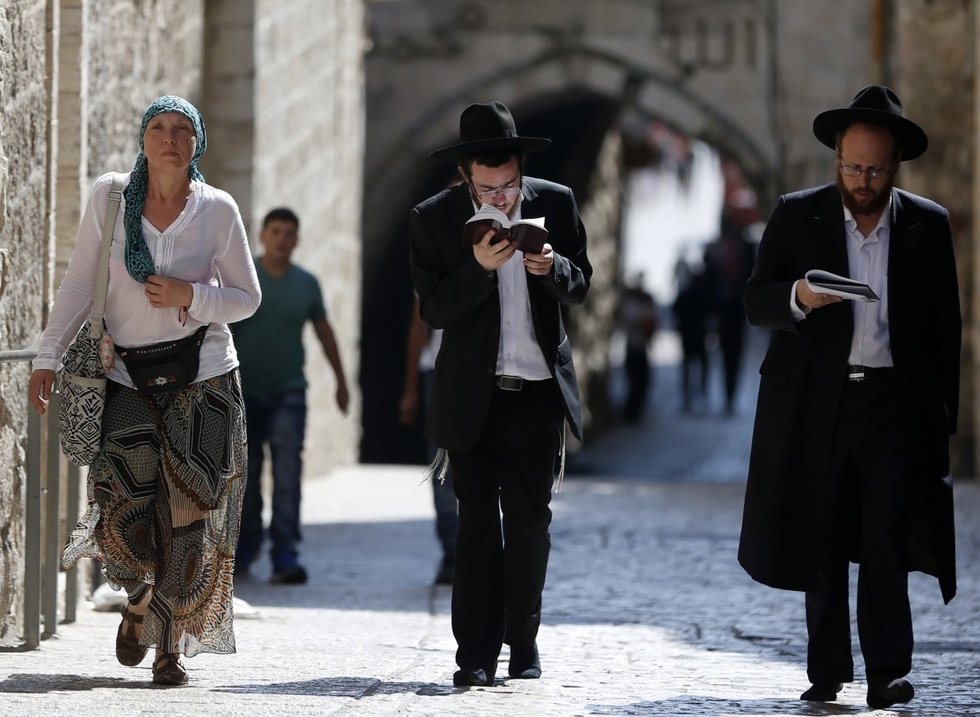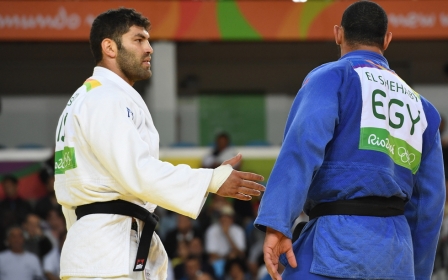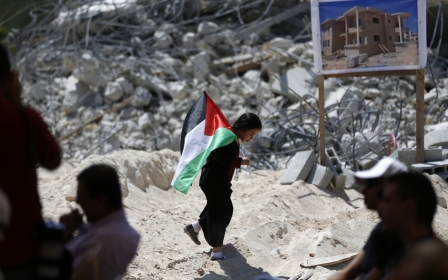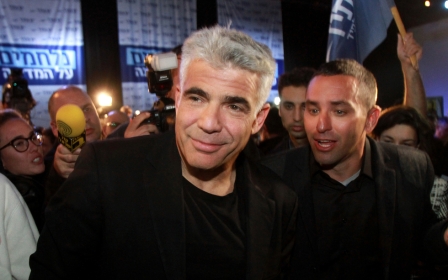Jews expelled from Jersualem site on mourning day

Hundreds of Jews visited Jerusalem's Al-Aqsa mosque compound on Tisha B'av, a religious day of mourning, with several expelled for praying, a right restricted to Muslims, police said on Sunday.
Over 300 Jews entered the site during morning visiting hours, according to Jewish activists and the Waqf - the Jordanian foundation that oversees the site.
More were expected in the afternoon, when Tisha B'av, which commemorates the destruction of the two ancient temples at the site, nears its end.
Police had boosted security with hundreds of extra officers ahead of the event, which began on Saturday night.
Tens of thousands of Jews also prayed at the adjacent Western Wall during the day.
Advocates for prayer rights for Jews at the esplanade, the holiest site in Judaism and referred to as the Temple Mount, have called on Jews to visit the sensitive area.
It is Islam's third holiest site.
According to a police statement, seven Jews were detained for "violating the terms of the visit".
Honenu, an advocacy group that provides legal aid to fundamentalist Jews, said three of them were held for citing verses from prayer, and another for tearing his shirt, a sign of mourning in Judaism.
Jews are allowed to visit but not to pray there, but the site has been the scene of regular incidents when Jews try to ignore the rule and Muslims intervene to stop them.
Police said Muslims had congregated around two Jews being expelled by police and began yelling at them. Police pushed them away and three Muslims were lightly wounded in the scuffle.
Jerusalem has been at the heart of a wave of violence since October in which 219 Palestinians, 34 Israelis, two Americans, an Eritrean and a Sudanese have died, according to an AFP count.
Most of the Palestinians killed were carrying out knife, gun or car-ramming attacks, according to Israeli authorities.
While the number of attacks has declined in recent weeks, Palestinian fears of Israeli intentions to undermine Muslim control of the Al-Aqsa mosque compound were a central component in the violence erupting 10 months ago.
Palestinians argue that Israel is seeking to change the status quo at the compound, a claim that Prime Minister Benjamin Netanyahu has repeatedly denied.
New MEE newsletter: Jerusalem Dispatch
Sign up to get the latest insights and analysis on Israel-Palestine, alongside Turkey Unpacked and other MEE newsletters
Middle East Eye delivers independent and unrivalled coverage and analysis of the Middle East, North Africa and beyond. To learn more about republishing this content and the associated fees, please fill out this form. More about MEE can be found here.




